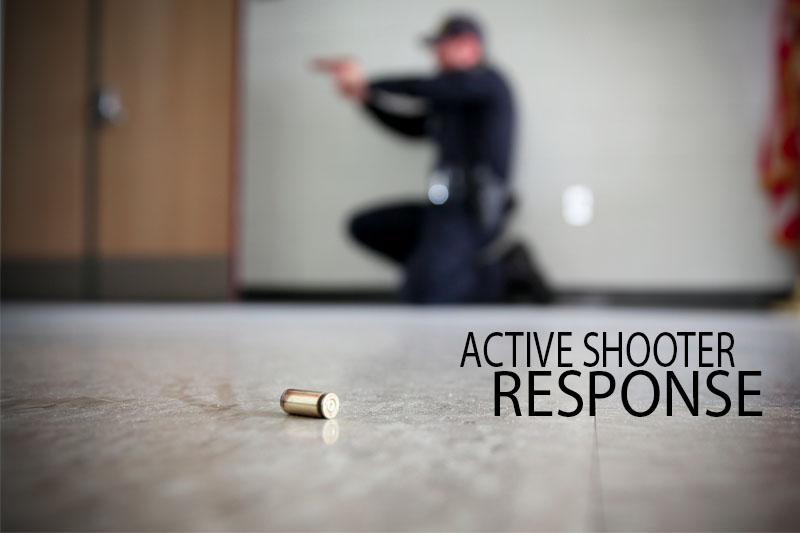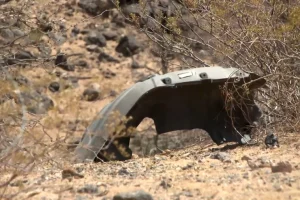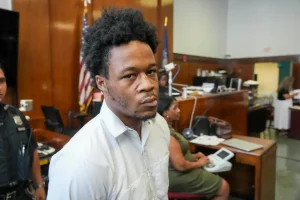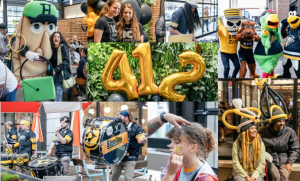RMU Police prepare students and faculty for emergencies
October 10, 2017
The Robert Morris University Police Department believes they would be prepared in the case of an active shooter, and they would like students to be prepared as well.
RMU’s police force has training set in place for an unexpected tragedy like an active shooter. While they have a CARE Team in place, which involves the Counseling Center and other departments in the university, they have come up with ways to inform students of the proper procedures during an emergency.
“This is something we’ve been wanting to do for a while, and it’s just taken time and enough events that occur for it to be welcomed with open arms,” said Sergeant Jeffery Schmetzer of RMU Public Safety. “I guess a lot of people want to see it as a negative and it’s not, it’s proactive.”
The police department has been showing videos to the faculty and students of RMU. The videos called “Run, Hide, Fight” and “Coming Storm” are shown to the faculty. The goal is to incorporate them into the syllabus.
“Right now, the way it is is just us showing them (professors) presentations … getting them to incorporate something into their syllabus for the start of the semester,” said Schmetzer.
While this is just in the beginning phases, students are also shown a video called “Shots Fired.” This video is shown to every freshman class during First Year Studies Seminar.
“The freshmen who come in every year, we show them “Shots Fired,” which is an older version, but it’s the same principle,” said Schmetzer. “They all cover the same things, it’s just one, the “Coming Storm” is nice because it shows the whole process from the beginning till the end.”
Police are not only educating the faculty and students for an emergency, but they are also training and preparing for their role in a situation. During training, they learn and practice scenarios during the summer months in Hale Center with practice guns and obstacles.
“(We are) using simunition barrels, which are guns that fire bullets but they’re probably a quarter of the powder and then paint,” said Schmetzer. “And it hurts. It’s not like a paintball; it hurts bad. That’s the training we do now.”
RMU Sentry Media also put out an article in 2015 about the past training. The training they used was ALERRT, which is still used by RMU Law Enforcement now.
“Every officer is trained to handle events such as shootings or heavy violence. ALERRT, or Advanced Law Enforcement Rapid Response training, is a training that breaks down the specifics on how to respond to the situation,” said the article.
Police encourage students to follow RMU Alert if there was ever an emergency situation like this on campus. RMU Alert is a system that sends out warnings of an emergency in a matter of minutes. They warn that the alert will ask students to stay where they are, lock the door and barricade openings.
“An RMU Alert, we use that for emergency status only,” said Chief Randy Mink of RMU Public Safety.
“Even when that alert comes out, it’s going to cause some kind of panic. There are people who are not going to listen,” said Schmetzer. “We know it’s going to happen but it doesn’t help us. That’s the other point of doing this and trying to get this information out there is because that way you have an idea and understand why.”
RMU Public Safety Department has the tools it needs to prevent and stop an attack. For more information, visit their website.
A CARE (Crisis Assessment and Risk Evaluation) Team has been active at Robert Morris University to go along with the emergency training given to students and faculty.
Holly Harmon, director of the RMU Counseling Center, started the formal CARE Team when she came to RMU four years ago. The Counseling Center and other departments (Center for Student Success, Faculty, Residence Life, Student Health Services, Department of Athletics, University Police, and Student Programs & Student Community Standards) work together to piece together the puzzle to reach out to and support students in distress.
“I can tell you that all the members really are genuinely concerned, it’s not a meeting … we get to know the kids that might be struggling on campus and genuinely want to reach out and help,” said Harmon. “We have a lot of resources on campus, but not everybody knows about them.”
CARE Teams started with the Virginia Tech Massacre. After the tragedy, the school placed a CARE Team to try to prevent something like it from happening again and increasing communication with students early on.
“Think of this as an early intervention. We want to help students as soon as we can and especially in the rare case that there’s a student with any sort of violent concerns,” said Harmon. “That’s going to be an immediate thing by us, but as soon as it crosses over into a crime it becomes a police matter, and the police handle it per their protocol.”
There are different ways for a student to be brought to the attention of the CARE Team. The main way is through an online report. Once the report is made, Harmon checks to see how urgent the situation is. From there, the CARE Team meets to decide who knows the person the best and who is equipped to handle it.
“You just never know and that’s why it’s been really wonderful because again, there’s always that context of what’s going on, and so having the different members of the team that we have, they all have different insights,” said Harmon.
RMU’s CARE Team meets every two weeks, but luckily RMU has not had to deal with any detrimental situations.
“We’re a great campus. I feel very lucky that we haven’t had to deal with something like that (an active shooter),” said Harmon. “I mean, we have students that are troubled, students that are angry, and that’s all okay, but we’ve never had a situation where we’ve averted disaster.”
For more information on RMU’s CARE Team, go to their website.












